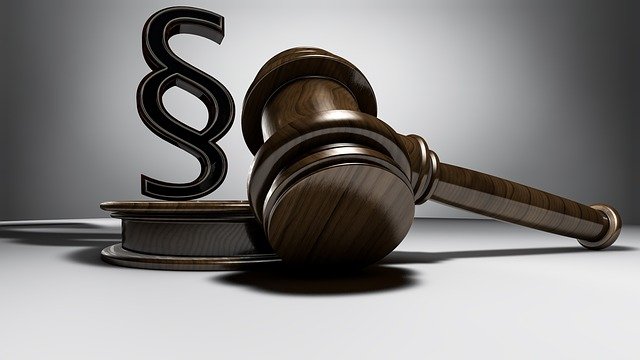
Lawyer Reputation | Everything You Need to Learn About
The contents of this web page are for informational and educational purposes only, and nothing you read is intended to be legal advice. Please review our disclaimer before taking action based upon anything you read or see.
Lawyers have a reputation for being ruthless and heartless. However, many lawyers dedicate their lives to helping others. These lawyers work hard to uphold the law and provide legal advice. Despite the negative stereotype, many kind and compassionate lawyers make a difference in the world.
Do you think Most Lawyers are Unethical?

Lawyers are often looked down upon because of the profession’s reputation. Even though many ethical laws govern attorneys’ conduct, the public image of the legal system has been tarnished. This blog post will talk about the law firm’s reputation problems.
This blog post discusses the problem of lawyer reputation and how it affects how lawyers practice their profession.
The Problem: Lawyer Reputation
There is a long-standing perception that lawyers have an inferiority complex and feel threatened by any criticism or negative publicity. Many people believe that lawyers are greedy, dishonest, and uncaring. These perceptions are detrimental to the quality of service lawyers provide in our society.
How The Public Perceives Lawyers
There is a definite belief that lawyers are not trustworthy in the general public’s eyes. People perceive lawyers as being self-serving, unprofessional, arrogant, and greedy.
They also associate lawyers with the justice system, which they view as corrupt. In addition, some people believe that lawyers are involved in illegal activities such as bribery, fraud, blackmail, racketeering, money laundering, drug dealing, and prostitution.
These beliefs are mainly factual. A recent study found that only 15% of Americans trust lawyers at all. Additionally, half of those surveyed believed that lawyers had too much power and influence over government officials.
Furthermore, more than one-third thought that lawyers were dishonest and greedy. And finally, nearly 60% felt that lawyers did not care about the rights and needs of others.
These perceptions are damaging for several reasons:
- They cause distrust between the public and lawyers. As a result, lawyers lose out on business opportunities.
- They discourage individuals from seeking legal advice.
- They lead to ineffective client representation.
- When clients seek legal aid, they hire poorly trained professionals who lack the proper skills and knowledge required to provide adequate services.
What Can Be Done About It?
Unfortunately, attempts to improve the profession’s public image have been unsuccessful so far. Some states require bar associations to publish surveys showing the percentage of complaints received against individual members of the state’s bar association. However, this kind of approach does little to help the public understand what happens behind closed doors.
Other efforts to make the legal profession look better include:
- Establishing ethics committees.
- Creating codes of professional responsibility.
- Holding periodic workshops to teach students about professionalism.
Although these measures may seem helpful to the profession, they have done little to alleviate the public’s overall impression of lawyers.
One thing that might or might not work would be to establish an independent body, similar to the National Ethics Foundation, to monitor compliance with the rules and regulations of the legal profession. Such an organization could issue regular reports on ethical standards, investigate misconduct allegations, and recommend disciplinary action if necessary. This watchdog function has proven successful in other professions, including medicine, dentistry, pharmacy, accounting, and engineering.
It seems clear that a more positive image of the legal profession is needed. Accordingly, lawyers need to take steps to dispel misconceptions about their character and competence.
Lawyers must first recognize how the public perceives them to achieve this goal. Then, they should become actively engaged in public relations campaigns designed to correct the misperceptions and restore public confidence.
The Legal Profession: An Unhappy Marriage

Lawyers are often viewed as untrustworthy because they appear to have something to hide. The truth is that most attorneys honestly believe that they cannot do anything unethical or unlawful.
But it doesn’t matter whether they mean well or not; the perception that they are dishonest will always exist among the general public.
Lawyers can try to change this situation by taking the following actions:
- Recognize and accept that many people still hold negative views about the legal profession.
- Make every effort to ensure that your reputation remains clean.
- Seek out ways to promote yourself as a model lawyer.
- Become active participants in community service projects.
- Work closely with any law enforcement agencies to combat crime.
- Develop good relationships with judges and court personnel.
- Maintain high ethical standards while representing clients.
- Admit mistakes when appropriate.
- Avoid using fear tactics to get clients to pay up.
- Never engage in questionable practices like billing for nonlegal services or charging excessive fees.
- Take advantage of free publicity whenever possible.
Finally, lawyers need to remember that their behaviour affects their ability to earn trust. As one attorney put it, “We’re all human.” By acting professionally, maintaining integrity, and demonstrating honesty, lawyers regain credibility in the general public’s eyes.
Strategies for Lawyer Reputation Management
To build and maintain a favourable reputation, lawyers must develop strategies to counteract any unfavourable information in the media. These strategies fall into three categories:
- Responding to specific issues
- Dealing with ongoing controversies
- Dealing with the long-term effects of past violations
Responding to Specific Issues
When news stories begin to circulate concerning a particular incident involving a lawyer, the first response should be to deal directly with the reporter or newspaper editor who wrote or published the story. If the problem consists of a client or another lawyer, then the lawyer handling the case needs to discuss the matter promptly with their supervisor.
In addition, a lawyer should contact the reporter or editor and explain why the incident was handled correctly.
If there were no problems involved, then a lawyer should consider contacting the reporter or editor and offering to provide additional information or comment. A lawyer should never attempt to influence reporters through threats or bribes.
Dealing with Ongoing Controversies
Many lawyers worry that negative publicity will follow them throughout their careers however unless a lawyer engages in illegal conduct, they will rarely find him in hot water. Most of the time, the only way to avoid controversy is to stay away from potentially controversial subjects.
Although some lawyers feel compelled to take on cases involving certain types of misconduct, these decisions should not be made lightly. Lawyers should carefully evaluate each potential case before committing.
The best way to handle an ongoing controversy is to keep moving forward with business as usual. This means that if you have been accused of wrongdoing, you should respond quickly and aggressively. You should hire competent counsel to help defend you and prepare a strong defence.
You may also want to consult with other lawyers specializing in defending ethics charges. Finally, you should make sure that your firm maintains its professional image and continues to practice ethically.
Dealing with Past Violations

When a lawyer has committed a severe violation of the Code of Professional Responsibility, the consequences can last far beyond the immediate case. For example, the State Bar’s Office of Chief Trial Counsel can initiate disciplinary proceedings against a lawyer based on a police investigation.
Once such an action begins, the process usually takes several years to complete. A lawyer may lose valuable work opportunities and face financial hardship during this period.
Frequently Asked Questions
How do I find a lawyer’s reputation?
Lawyers are generally required by law to disclose all complaints received about them. The state bar association keeps records of every complaint filed against a lawyer; however, most states do not require attorneys to report the results of investigations.
You may use any of the following methods to research a lawyer’s reputation:
- Ask friends, family members, colleagues, or other people.
- Read articles about the lawyer in newspapers, magazines, journals, or legal publications.
What personality type are lawyers?
People who choose to become lawyers must possess many different personality traits. They need to be patient, persistent, and tenacious. They must think logically, solve problems, and communicate effectively. Moreover, they must be self-disciplined, organized, and efficient.
Most lawyers are introverts because they prefer to spend more time alone than others. They tend to dislike conflict and prefer to resolve problems without confrontation.
Do lawyers think differently?
Yes. Some lawyers believe that the law is like a game that they play for the sake of winning. Others see themselves as servants of society, working to improve the lives of those around them. Still, others view themselves as guardians of justice. Regardless of how they define themselves, lawyers share one common trait: They care deeply about what happens to their clients.
Do lawyers lie?
No. Lawyers are among the least likely professionals to lie. Many lawyers would never consider lying to protect a client. Even when faced with a difficult ethical dilemma, most lawyers try to find a solution that does not involve deception.
How do I ever know if my lawyer is honest?
Your lawyer should tell you upfront whether they intend to deceive you. If your attorney tells you that they will mislead you, it is probably best to look elsewhere.
Conclusion
To sum up, lawyers are human beings just like everyone else. Although they are trained to serve society, they still have feelings and emotions. Lawyers often feel guilty after making mistakes and want to fix things, so they don’t happen again.
However, some lawyers lack empathy and compassion. These lawyers tend to focus only on their interests and may even harm their clients.
References
- https://www.nap.edu/collection/32/ethical-foundations-of-science
- https://www.socialworkers.org/About/Governance/National-Appointments/National-Committees/National-Ethics-Committee/
- https://en.wikipedia.org/wiki/Legal_profession
- https://www.youtube.com/watch?v=phixtPhc160
- https://www.youtube.com/watch?v=m_uhqLUEtT0
- https://www.corteidh.or.cr/tablas/a21925.pdf
- https://www.calbar.ca.gov/

I’m a driven and accomplished law graduate and post-graduate, passionate about sharing my legal expertise via my blog. I hold a Bachelor’s degree in Law from the University of London (UK) and a Master’s in Law from the University of Derby (UK). Both gave me the foundational knowledge and skills to excel in my chosen career path.
Throughout my academic journey, I have gained extensive knowledge in various fields of Law, including Corporate and Business Law in the USA, Criminal Law, International Law, US Copyright law, and most importantly, American Constitutional law.


Comments are closed.